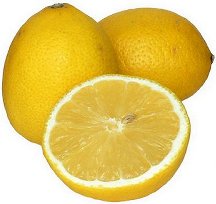Lemon ketchup, “or pickle.”
The title of the original early nineteenth century recipe reflects the fluid nature of ketchup and similar condiments. Other nineteenth century recipes strain lemon ketchup, but this one results in a sauce something like a thinnish chutney. By any name another good condiment from Isobel Christian Johnstone, unaccountably called Christina J. Johnstone by Andrew F. Smith, author of the Oxford Companion to American Food and chronicler of ketchup. The recipe is unusual, but only for a ketchup, in drying the salt lemons in a low oven the way Royal Navy cooks dried citrus zest to preserve it in the age of fighting sail.
 6 big lemons
6 big lemons- good coarse salt, like Maldon
- 6 peeled and smashed garlic cloves
- about a cupful of grated horseradish
- 24 oz “good vinegar” ( see the Notes)
- 1 teaspoon cayenne
- about ½ cup mustard seed
- Pare away the zest and outer pith of the lemons, rub them down with salt, then cut an opening in the end of each lemon and massage its interior with salt as well.
- Bed the lemons in more salt mixed with the horseradish and garlic: Let the lemons cure loosely covered for about a week in a cool place.
Preheat the oven to 200°.
- Spread the salted lemons on an oven sheet and bake them until “quite crisp.” The process could take two or more hours, but varies considerably, so it is best to check the lemons every 10 minutes or so after the first half hour to ensure that they do not scorch.
- Bring the dried cured lemons in the vinegar with the cayenne to a boil, remove the ketchup pickle from the heat and stir in the mustard seed before putting up the mixture in suitable jars.
Notes:
-Mrs. Johnstone includes no quantities in her recipes, so the choice of 24 ounces of vinegar is at best an educated guess: She requires “three bottles” without disclosing their contents.
-What kind of vinegar to use? Mrs. Johnstone does not say, but her choices would have run the range from Cider and grain (white) to clear if she was being economical, which would have been likely. We in the twenty-first century might choose Champagne vinegar instead.
-You will have peeled away the zest of six lemons to make this ketchup. Anyone who spends the least amount of time in the kitchen will recognize that the zest amounts to an invaluable resource not to be wasted. What is to be done? A good solution is the one that Royal Navy cooks understood in the age of fighting sail. Make what they called ‘ lemon pepper ,’ by baking the peel in ribbons in the oven on low heat for a couple of hours and then grinding them to powder in a spice mill. As with the lemons you are baking at the same time for your ketchup, check the peel from time to time to ensure that it does not color. As Janet MacDonald confides in Feeding Nelson’s Navy , take “the ‘pepper’ to sprinkle over cooked chicken or fish, or on top of a syllabub.”

